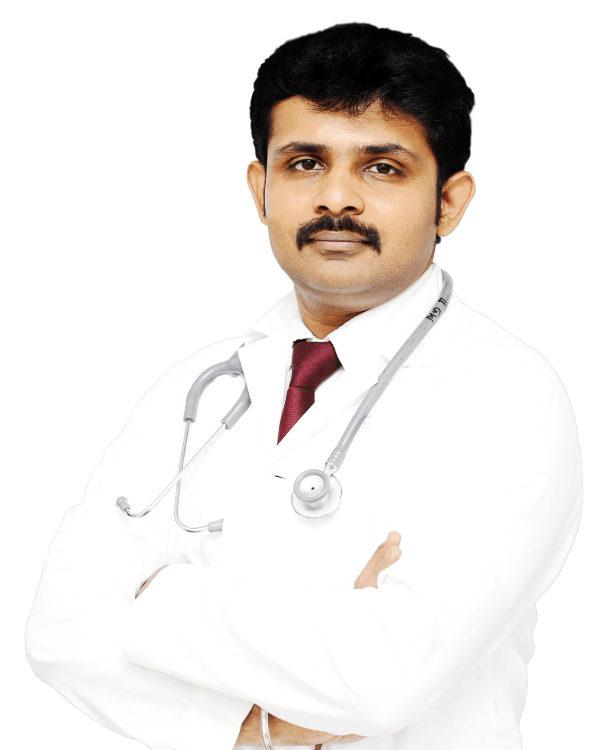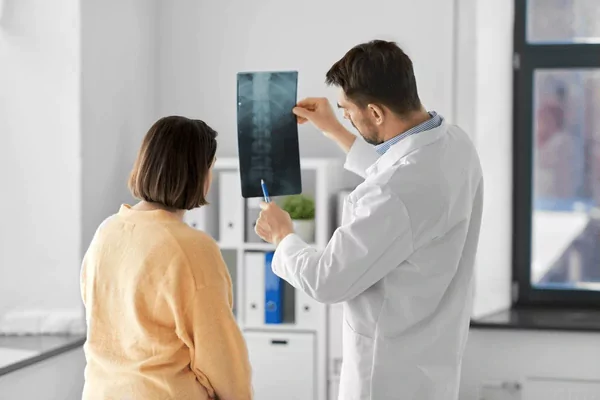Back pain is one of the most common health issues affecting millions worldwide. Whether due to poor posture, an injury, or an underlying medical condition, back pain can significantly impact daily life.
One lesser-known yet crucial factor contributing to back pain is fascia—a connective tissue that plays a vital role in movement, flexibility, and overall musculoskeletal health.
Dr. Vignesh Pushparaj, a renowned back pain surgeon in Chennai, specializes in diagnosing and treating fascia-related back pain with advanced, personalized care.
In this blog, we will explore what fascia is, how fascia relates to back pain, and effective treatment approaches for back and neck pain treatment in Chennai.

Understanding Fascia and Its Function
What is Fascia?
Fascia is a dense, fibrous connective tissue that encases muscles, organs, nerves, and blood vessels. It serves as a supportive framework, enabling smooth movement and reducing friction between body structures.
Fascia also plays a critical role in maintaining posture and distributing forces across the body.
Types of Fascia in the Human Body
- Superficial Fascia – Located under the skin, storing fat and providing cushioning.
- Deep Fascia – Surrounds muscles, nerves, and blood vessels, offering structural support.
- Visceral Fascia – Protects and stabilizes internal organs.
When fascia becomes tight, restricted, or inflamed, it can contribute to chronic back pain and stiffness.
How Fascia Relates to Back Pain?
Role of Fascia in Back Pain
- When fascia loses its elasticity due to injury, poor posture, or lack of movement, it tightens and restricts muscle function.
- Myofascial Pain Syndrome (MPS) is a common condition caused by fascia dysfunction, leading to persistent muscle pain and tension.
- Fascia restrictions can compress nerves, causing radiating pain in the lower back, shoulders, and neck.
Symptoms of Fascia-Related Back Pain
- Stiffness and restricted movement in the lower back and neck.
- Trigger points or knots causing localized pain.
- Pain worsening after prolonged inactivity or repetitive movements.
Causes of Fascia Dysfunction Leading to Back Pain
Sedentary Lifestyle and Poor Posture
- Long hours of sitting or improper posture can cause fascia to become stiff and adhered.
- Lack of movement leads to reduced blood flow, further exacerbating pain.
Injury and Trauma
- Scar tissue formation can result in fascia tightness and movement restrictions.
- Past injuries or surgeries may lead to chronic pain syndromes if not properly rehabilitated.
Dehydration and Poor Nutrition
- Fascia needs proper hydration to remain elastic and functional.
- Nutrient deficiencies in collagen, protein, and vitamins can weaken fascia health.
Stress and Emotional Tension
- Chronic stress can cause muscle tension, leading to fascia stiffness and discomfort.
- The mind-body connection plays a significant role in myofascial pain disorders.
Effective Treatment Approaches for Fascia-Related Back Pain
Non-Surgical Treatments by a Back Pain Specialist in Chennai
- Myofascial Release Therapy – A hands-on technique that helps release tight fascia and restore mobility.
- Physical Therapy & Stretching Exercises – Targeted stretches improve flexibility and break fascia adhesions.
- Massage Therapy & Foam Rolling – Helps loosen tight fascia and improve blood circulation.
- Hydration & Nutrition Guidance – Encouraging a balanced diet and hydration for optimal fascia function.
Advanced Surgical Solutions by a Back Pain Surgeon in Chennai
- Minimally Invasive Fascia Release Surgery – Used for severe cases where non-surgical methods are ineffective.
- Microdiscectomy or Spinal Decompression Surgery – Performed when fascia tightness contributes to nerve compression.
- Post-Surgical Rehabilitation – Ensuring proper recovery with tailored physical therapy programs.
Causes of Fascia Dysfunction Leading to Back Pain
Sedentary Lifestyle and Poor Posture
- Long hours of sitting or improper posture can cause fascia to become stiff and adhered.
- Lack of movement leads to reduced blood flow, further exacerbating pain.
Injury and Trauma
- Scar tissue formation can result in fascia tightness and movement restrictions.
- Past injuries or surgeries may lead to chronic pain syndromes if not properly rehabilitated.
Dehydration and Poor Nutrition
- Fascia needs proper hydration to remain elastic and functional.
- Nutrient deficiencies in collagen, protein, and vitamins can weaken fascia health.
Stress and Emotional Tension
- Chronic stress can cause muscle tension, leading to fascia stiffness and discomfort.
- The mind-body connection plays a significant role in myofascial pain disorders.
Effective Treatment Approaches for Fascia-Related Back Pain
Non-Surgical Treatments by a Back Pain Specialist in Chennai
- Myofascial Release Therapy – A hands-on technique that helps release tight fascia and restore mobility.
- Physical Therapy & Stretching Exercises – Targeted stretches improve flexibility and break fascia adhesions.
- Massage Therapy & Foam Rolling – Helps loosen tight fascia and improve blood circulation.
- Hydration & Nutrition Guidance – Encouraging a balanced diet and hydration for optimal fascia function.
Advanced Surgical Solutions by a Back Pain Surgeon in Chennai
- Minimally Invasive Fascia Release Surgery – Used for severe cases where non-surgical methods are ineffective.
- Microdiscectomy or Spinal Decompression Surgery – Performed when fascia tightness contributes to nerve compression.
- Post-Surgical Rehabilitation – Ensuring proper recovery with tailored physical therapy programs.
Preventive Strategies to Maintain Healthy Fascia
Daily Habits to Support Fascia Health
- Maintain proper posture while sitting, standing, and sleeping.
- Incorporate daily movement such as stretching, yoga, or Pilates.
- Stay hydrated and eat a balanced diet rich in proteins, collagen, and vitamins.
- Use self-massage tools like foam rollers to keep fascia flexible.
When to See a Back Pain Specialist in Chennai?
- If back pain persists for more than two weeks despite home treatments.
- If pain is radiating down the legs, causing weakness or numbness.
- If stiffness and tightness are limiting daily activities and mobility.
Dr. Vignesh Pushparaj offers comprehensive back and neck pain treatment in Chennai, providing tailored solutions to relieve fascia-related pain and restore mobility.
FAQs on Fascia and Back Pain
- Can tight fascia cause chronic back pain?
Yes, tight fascia can contribute to chronic back pain by restricting movement, compressing nerves, and causing muscular imbalances.
- How do I know if my back pain is fascia-related?
If you experience stiffness, localized pain, and tension that worsens with inactivity, it may be due to fascia dysfunction.
- What are the best exercises to improve fascia health?
Gentle stretching, yoga, Pilates, and myofascial release techniques help maintain healthy fascia.
- Can hydration improve fascia-related back pain?
Yes, proper hydration keeps fascia elastic and prevents stiffness that contributes to pain.
- When should I consult a back pain surgeon in Chennai?
If pain persists, worsens, or is accompanied by nerve-related symptoms, consult Dr. Vignesh Pushparaj, a leading back pain specialist in Chennai.
Conclusion
Fascia plays a crucial role in maintaining spinal health and preventing back pain. When neglected, it can lead to chronic pain, stiffness, and reduced mobility.
Understanding the connection between fascia and back pain can help in adopting effective treatment and prevention strategies.
For those suffering from persistent back pain, expert care from Dr. Vignesh Pushparaj, a top back pain surgeon in Chennai, can provide lasting relief through advanced and personalized back and neck pain treatment in Chennai.
📞 Schedule a consultation today and take the first step toward a pain-free life






0 Comments